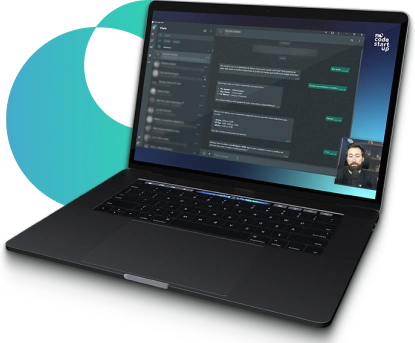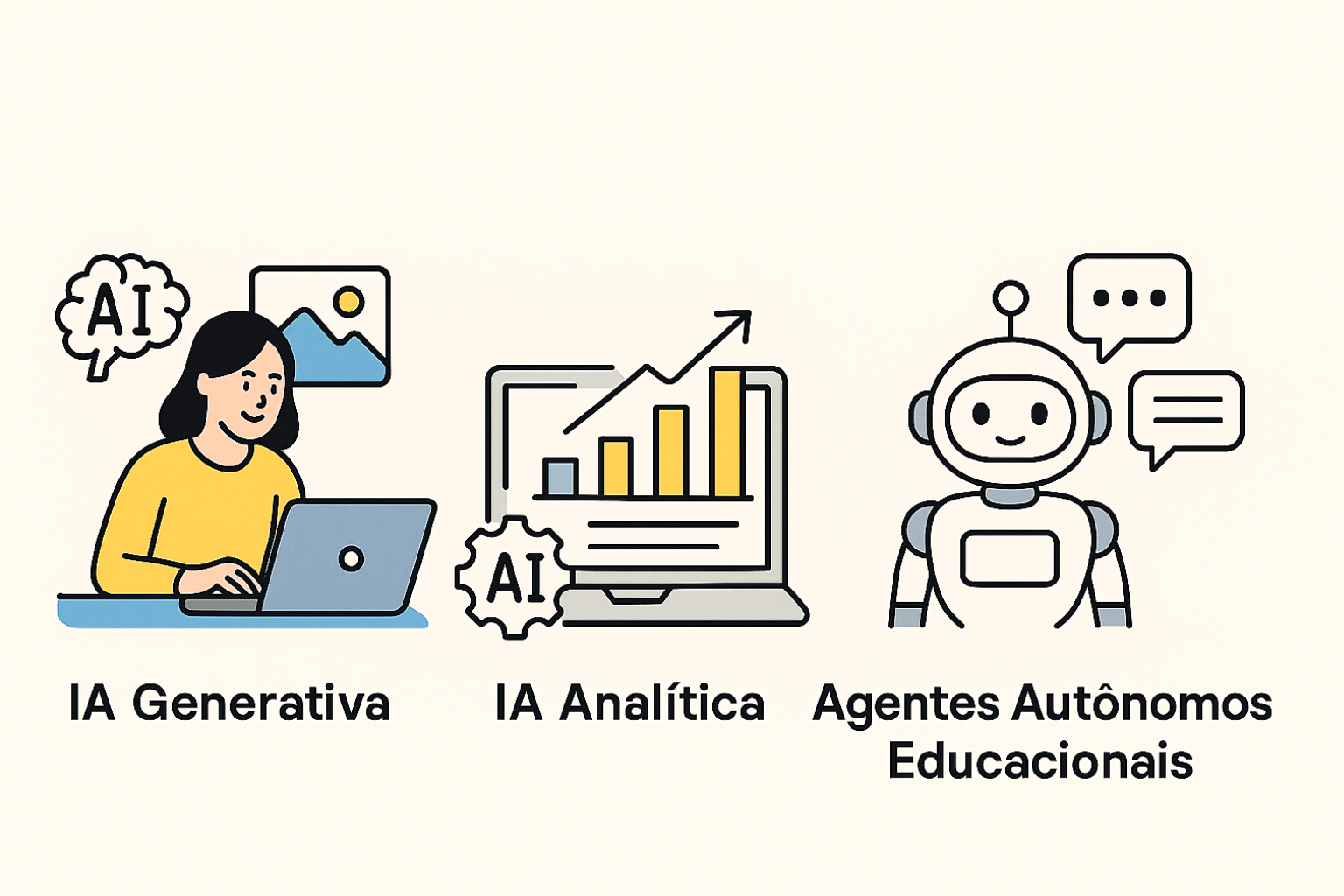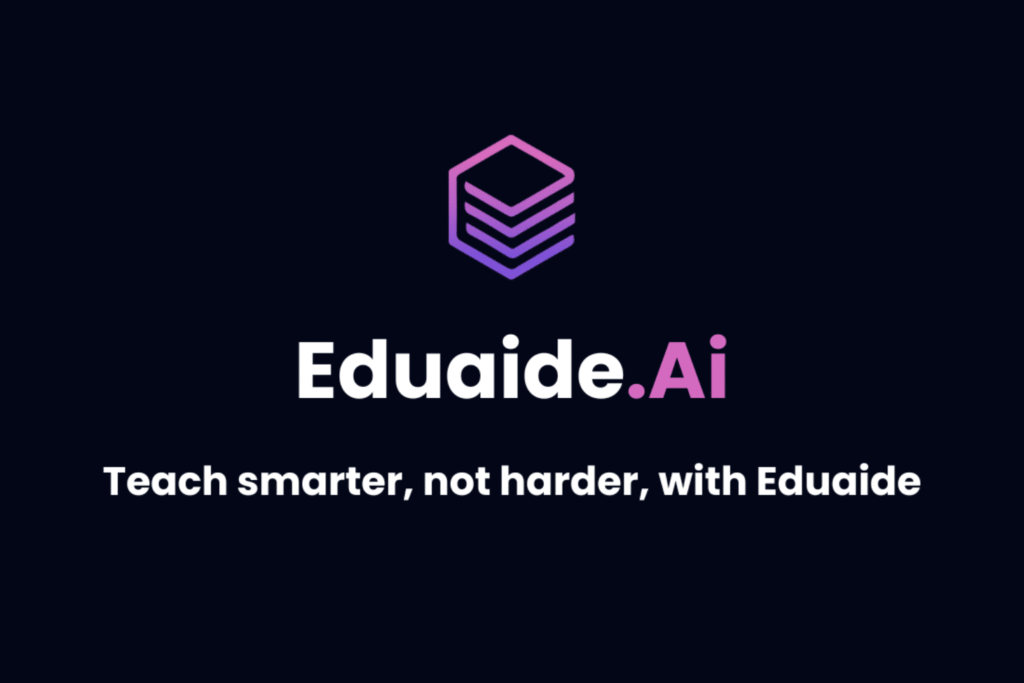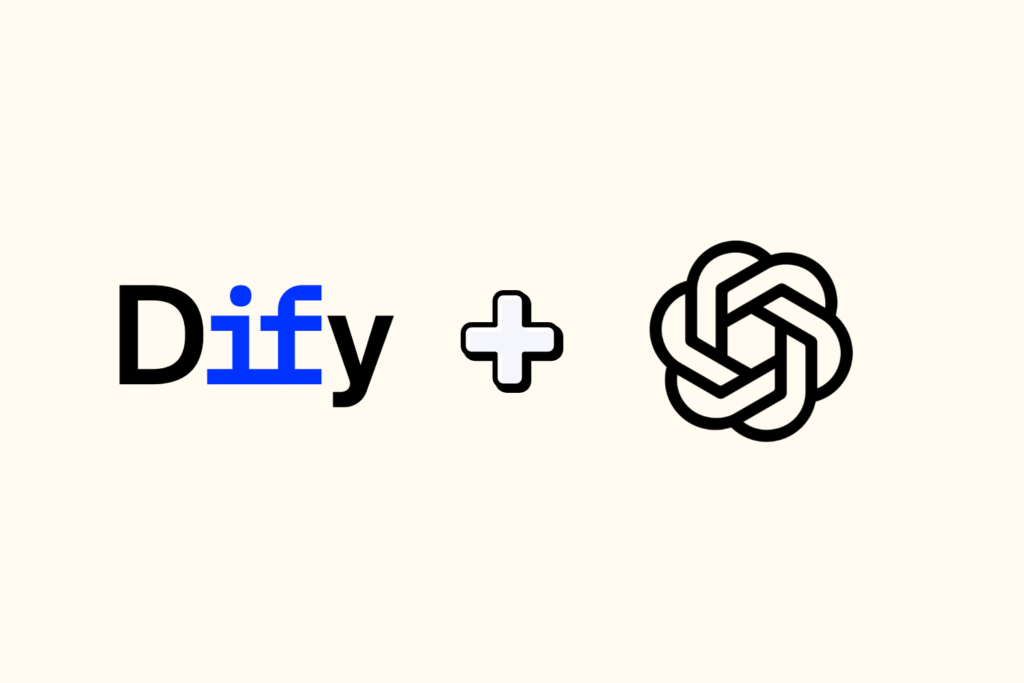The world is becoming increasingly technological. As a result, we are witnessing a revolution in the job market.
As the automation, The Artificial Intelligence (AI) and the scanning They gain space, new professions and demands for skills emerge to keep up with the pace of change.
If you are interested in learning about the main professions of the future, this content is for you! Next, we will explain what the concept means, we will show examples of the professionals who will be most in demand in the coming years, the duties and skills required by the market and what is necessary to win an opportunity.
Read on to learn all about the topic and prepare for this evolving scenario.
Table of Contents
What are the professions of the future and their challenges?
To understand the professions of the future, think about your grandparents' generation. Did they ever imagine the profession of influencer? Or that your grandchildren would make money playing video games?
The professions of the future are responses to the emerging demands of society and technological changes. In other words, they accompany cultural transformations and, therefore, are dynamic: something new can emerge at each time.
A recent study, released by World Economic Forum, addressed the outlook for the labor market in the coming years. According to the report, the demand for labor will not remain static.
We will see updates brought about by geopolitical and economic transformations resulting from the experiences of recent years, including the Covid-19 pandemic.
The conclusions of the World Economic Forum highlight that the occupations with the highest growth projections are in the areas of technology, digitalization and sustainability.
Below, we list each of them, detailing the duties, the necessary skills and also the salary estimate. Be sure to check it out!

no-code Programmer

With the increasing accessibility of technological solutions, programmers no-code stand out from the create apps and solutions without the need for complex coding.
This not only simplifies the development process, but also democratizes access to technology, allowing different professionals to participate in the creation of digital solutions.
The role of no-code programmers does not require proficiency in conventional programming languages, but it still demands a series of specific skills and knowledge.
So it's worth investing in courses to create e-commerces and apps, in addition to having dominance on specific platforms.
According to the salary survey carried out by Code Fonte TV, the average salary of a no-code developer is R$8,052.09.
Quality Analyst
This professional will be responsible for ensure the quality and efficiency of products and services of companies.
With the growing value placed on customer experience, quality analysts play a crucial role in identifying and resolving issues, ensuring customer satisfaction.
To meet the demands of the area, it is necessary to invest in academic training in areas such as:
- production engineering
- industrial engineering
- Administration
- Quality Technology
- computer Science
However, training may vary depending on the industry and the nature of the products or services offered by the company.
O wage for quality analyst in Brazil varies between R$1.850 and R$5.825, according to Glassdoor estimates.
Information security analyst
Faced with the threat of breaches and cyber attacks, information security analysts will be essential to protect company data and infrastructure.
Its main functions are:
- Identify vulnerabilities;
- Implement protection measures;
- Respond to security incidents.
To work as an information security analyst, you must have training in:
- computer Science
- Computer engineering
- Information Technology
In addition to academic training, knowledge of cybersecurity practices, such as encryption and authentication, are essential.
According to Glassdoor, the salary for an information security analyst in Brazil varies between R$3.660 and R$12.723.
Data analysts and scientists
The volume of available data has increased exponentially, and data analysts and scientists will be responsible for to extract insights valuable from them.
These professionals are responsible for helping companies make informed decisions, identify market trends and improve operational efficiency.
Generally, they have training in areas such as:
- computer Science
- Statistic
- Mathematics
- Data Engineering
The salary for a data science analyst in Brazil varies between R$7.750 and R$30.827, according to a Glassdoor survey.
Cloud Computing Engineer
Cloud computing is transforming the way businesses store and access data.
Computer engineers in the field are responsible for designing and managing cloud infrastructures, ensuring companies have secure and efficient access to their resources.
To operate in this market, the recommended training courses are as follows:
- computer engineering
- computer Science
- Software Engineering
The salary of a cloud computing engineer in Brazil varies between R$8.000 and R$32.400, according to Glassdoor.
power engineer
In a scenario increasingly focused on renewable energy and sustainability, engineers specializing in energy play a vital role in planning and implementing ecologically viable energy solutions.
The work covers the creation of sustainable energy systems and the reduction of dependence on non-renewable sources. To perform this role, you need a degree in:
- Energy Engineering
- Electrical engineering
- Mechanical Engineering.
The salary of an energy engineer in Brazil, according to Glassdoor, varies between R$9,000 and R$24,000.
robotic engineers
The advancement of automation and robotics is effectively shaping the industrial landscape.
Engineers specializing in robotics are the masterminds behind the design and development of automata intended for a wide range of applications, from production lines to the provision of cutting-edge medical care.
To enter the field, academic training is usually in:
- Mechatronics Engineering
- Electronic Engineering
- Electrical engineering
- Computer Science.
The salary of a robotics engineer in Brazil varies between R$4.524 and R$8.158, according to information from Glassdoor.
Digital marketing specialist
In an era in which digital marketing is consolidated as a means of strategic reach, professionals dedicated to the area assume a central role.
Digital marketing experts are the architects of strategies that not only help increase brands' visibility online, but also generate leads quality and improve the customer experience.
Generally, professionals have training in areas such as:
- Marketing
- Communication
- Advertising
- Journalism
The salary of a digital marketing specialist in Brazil varies between R$4.250 and R$18.721, according to Glassdoor.
Artificial Intelligence Specialist
The use of Artificial Intelligence (AI) has become increasingly common in different sectors and activities. Therefore, specialists in the field are increasingly in demand.
The professionals design and implement AI-based solutions, which automate processes, improve decision-making based on data analysis and promote operational efficiency.
AI experts develop machine learning algorithms, recommendation systems, and natural language processing.
They can apply the technology in areas such as:
- Medical diagnoses
- Industrial automation
- Complex data analysis
- Other areas
The main objective is to drive innovation, transforming the way companies and industries operate.
To work as an AI specialist, the recommended training is:
- computer Science
- Computer engineering
- Electrical engineering
- Mathematics
The salary of an Artificial Intelligence specialist in Brazil varies between R$3.000 and R$4.024, according to Glassdoor.
advisor creators
The trend points to an increase in the number of agencies specializing in managing the careers of digital influencers, as new creators emerge.
In addition to facilitating the process of establishing new partnerships with companies, advisors provide strategic guidance to creators.
They are involved in the detailed management of professional trajectories, taking care of aspects that go far beyond simple commercial collaborations.
There are several training courses and specializations that may be interesting for the area, such as:
- Marketing
- Public relations
- Advertising
- Journalism
- Business management
According to information from Glassdoor, the average salary for a consultant creators in Brazil it is R$2.510.
What is the future of old professions?
Amid so many transformations, it is natural to question whether old professions are doomed to disappear. However, the reality is more complex.
While some occupations may be automated, many will undergo transformation and require new skills.
Professions that involve creativity, empathy, complex decision-making and human interactions will continue to be valuable.
How to prepare for the future
In the face of changes in the job market, preparation is essential to stay relevant and take advantage of the opportunities of the future. Investing in specialized courses and training is the best way!
Start your journey with No-code Start-Up now!
With our FlutterFlow course, you will learn how to create applications for iOS and Android platforms, without the obligation to handle complex codes.
There are no prior knowledge requirements, and all classes are available free of charge.
If you prefer to stimulate your skills in developing software and web-facing applications, the ideal option is bubble course.
Completely free, it also provides the essential didactic approach for those who are starting to study programming.






















